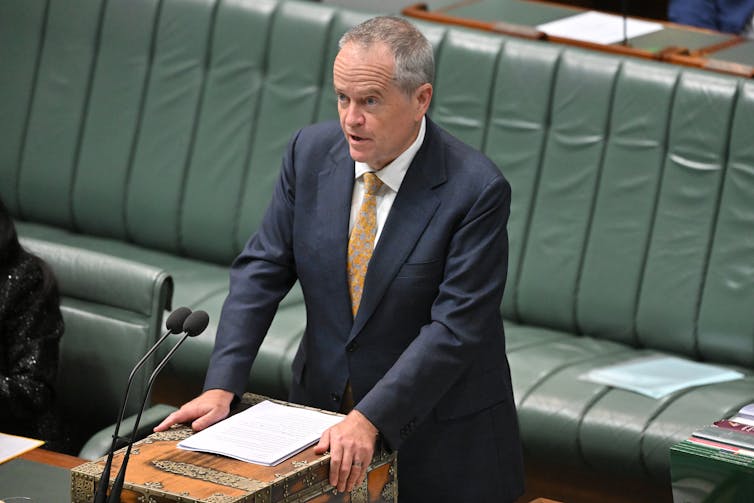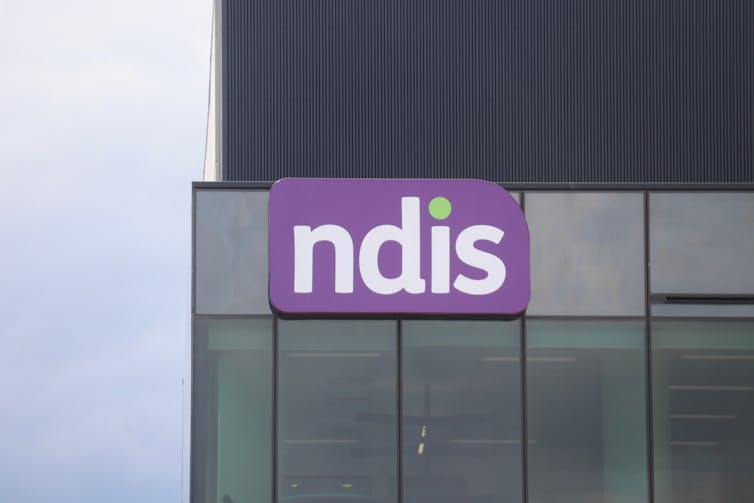Since the review of the National Disability Insurance Scheme (NDIS) released its recommendations in December, there has been a series of Town Hall events to discuss them around the country – but no actual changes. Today the government introduced a new bill to make way for NDIS reform.
Disability minister Bill Shorten said “legislation and rule changes are the key to unlocking a trustworthy and sustainable NDIS and will enable the government to drive change”.
What changes does the bill suggest? And what do people with disability need to know about what might happen next?
Read more: States agreed to share foundational support costs. So why the backlash against NDIS reforms now?
Why now?
Although the NDIS Review set out a five-year timeframe for reform, many of the items within this bill are needed to modify the NDIS Act and to allow for those changes to take place. One big motivator for action is the government’s commitment to moderate cost growth of the NDIS – rather than see it grow to more than one million participants and cost up to A$100 billion a year by 2032.
Some in the disability community have expressed concern about legislation being introduced without co-design with them. Reports suggest disability advocates who did see the bill before its introduction were subject to non-disclosure agreements. The government says co-design will take place over an 18-month period to flesh out the changes.
Although states and territories asked the government to delay introducing this legislation because of concerns over foundational supports, the bill does not mention them. It is mostly focused on the scheme and the work of the National Disability Insurance Agency (NDIA) that administers it.

What changes are outlined in the legislation?
There are a large number of changes outlined in the bill and there will be a lot to unpack in coming weeks. Broadly these focus on:
- how people access the scheme and plans are created
- how participants can spend funds
- how the NDIA can step in if they have concerns funds are not being spent effectively
- the powers of the NDIS Quality and Safeguards Commission.
The first big change is in how people will be assessed for entry to the scheme.
At the moment the scheme lists impairments that are likely to give people access to the scheme, for example permanent blindness or severe intellectual disability.
The review argued this was unfair because people may have a similar level of need as a result of a condition that isn’t listed. They have had to provide more evidence, which can be difficult to obtain and expensive. It has also meant access has been driven via diagnosis rather than the impact on function and daily activities.

A new type of assessment
The changes outlined in the bill will move the NDIS towards a needs-based assessment.
This will be supported by the use of functional assessment tools, removing some need for individuals to collect evidence from medical professionals.
“Your needs assessment will look at your support needs as a whole,” Shorten said. “And we won’t distinguish between primary and secondary disabilities any longer.”
Many of the tools needed for this process do not yet exist. But some in the community are wary given the controversy over proposals to introduce Independent Assessments a few years back. Those plans were shelved after significant backlash suggested they could become dehumanising and traumatising.
Tightening control on budgets and supports
The bill also outlines changes to how individuals can spend their plans.
At the moment plans are made up of a number of categories of funding and line items that set out how plans should be spent. The NDIS Review noted this process is often confusing for individuals and limits how they can spend funds. The changes will allow participants to spend funding allocations in more flexible ways.
The bill defines what constitutes an NDIS support and links to the United Nations Convention on the Rights of Persons with Disabilities for the first time. Examples include “supports that facilitate personal mobility of the person in the manner and at the time of the person’s choice”.
However, holidays, groceries, payment of utility bills, online gambling, perfume, cosmetics, standard household appliances and whitegoods will not qualify as NDIS supports. Participants will only be able to spend funding on those things identified as an NDIS support and which a participant requires as a result of their impairment.
The bill would give the NDIA more power over how participants manage plans. These powers will be used if the NDIA have concerns that an individual is not able to use their plan effectively or someone else might be trying to exploit or coerce them to use their funds in a way that isn’t consistent with their best interests.
The Quality and Safeguards Commission has previously been criticised for insufficient action. The review suggested a new model of regulation that would be scaled according to the level of participant risk. A taskforce examining provider and worker registration will report back some time in the middle of this year. So there are no changes to provider registration in this bill.
There is an expansion of the commission’s compliance and enforcement powers. They will be able to scale up efforts and restrict employment of a support worker when they have been banned by an approved quality auditor.
Read more: Recommendations to reboot the NDIS have finally been released. 5 experts react
More legislative changes ahead
These won’t be the last changes we will see to the NDIS legislation in the near future.
The government has already indicated it is likely there will need to be further changes following engagement with the disability community.
Co-design requires trust and the government will be hoping that releasing this legislation without significant engagement with the disability community hasn’t damaged relationships too badly.

